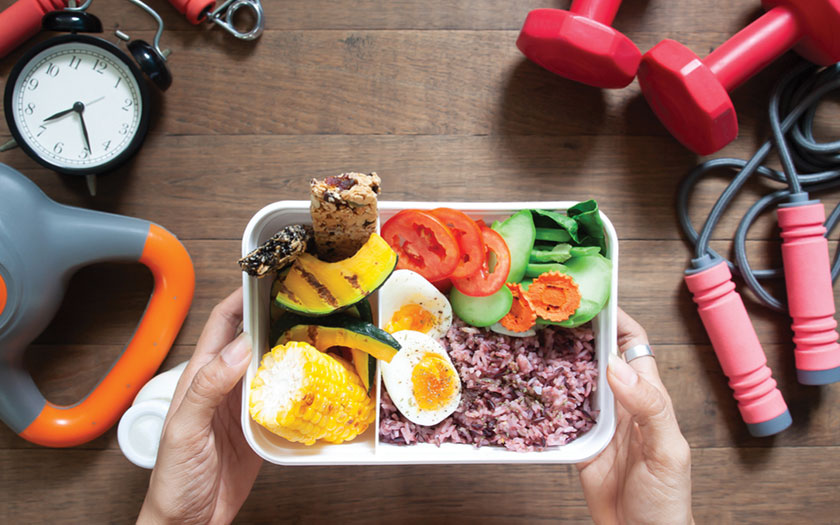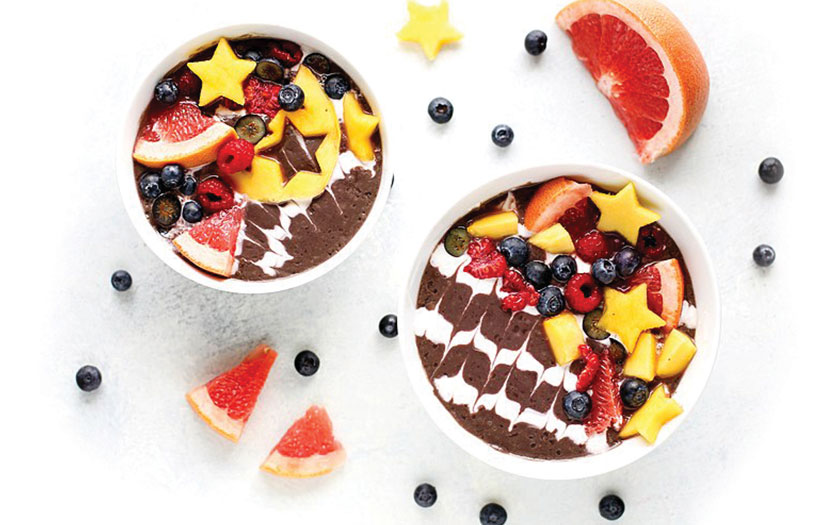If you are currently in an exercise programme, kudos to you! An appropriate and effective workout programme should focus on consistency while slowly progressing each week to drive the results you wish to see and feel. However, the workout part won’t get you anywhere if you do not have a proper diet in place as well, for it’s just as important for the best fitness results, inside and out.
When it comes to working out, rest and recovery are important, but nutrition has a much bigger role to play without proper nutrients, it will be quite impossible to develop strength, build muscle, lose fat, and enhance your fitness. What you eat while on a workout programme, particularly after a workout is, as you will find out, critical in reaching your fitness goals.
What Goes In Your Body Matters
When you workout, you’re putting the body through a form of stress, and as it starts to adapt to this stress in various ways, your body will start to get stronger, fitter, and leaner. It sounds like that’s all it takes to build, but that’s just half the case. Working out your body merely sets the stage for improving it, but at the same time, you are also naturally breaking down your muscle tissue on a microscopic level. The act of resistance training creates small tears in the muscle tissue. When these tears are repaired, they get a little bit bigger and that’s when muscle gaining begins. Without proper nutrition, this cannot take place correctly. In fact, without proper nutrition, recovery will become harder and you may also be at risk of dehydration as well.
It’s the same theory when it comes down to enhancing your fitness and cardiovascular function while working out, for nutrition plays a big part here too. At the end of the day, what you consume after a workout will determine if your body is well-prepared for the next workout.
Why Getting Enough Protein Cannot Be Overemphasised
Protein is extremely important to support the body’s repair and recovery after a workout when your muscles can be likened to sponges that are wanting to absorb protein to replenish and repair themselves. You’ll need to keep in mind though that there are other nutrients involved too. As for protein, we need it for:
- Repairing and building muscles
- Building enzymes and hormones
- Immune system function
- Keeping hair and nails strong
- Healthy skin, bones, ligaments, and cartilage
- Balancing fluids
- Maintaining proper pH
- Transporting and storing nutrients
Ensure you get a serving of protein within 30 to 60 minutes after your workout. There may be varying information and opinions on this, and it may be true that you don’t need to consume protein the second you’re done with your exercises, but the main idea is to consume it relatively soon after your session, while your muscles are hungry for it and can absorb them easily. This allows your body to make use of it efficiently. Although protein shakes can be very helpful in this situation, they’re not absolutely necessary. Think of protein shakes as a convenience and a time-saver for those situations when getting adequate protein in time is undoable.
Some good post-workout protein sources include:
- Organic eggs
- Wild caught fresh or canned tuna
- Wild caught fresh or canned salmon
- Grilled chicken
- Oatmeal, whey or any other plant-based protein
- Cottage cheese
- Lots of fresh greens
As far as how much you need to consume, the recommended amounts involve consuming 0.14 to 0.23 grams of protein per pound of bodyweight in that first meal 30 to 60 minutes after a workout. If you weigh more than 150 pounds, however, your post-workout protein requirement may be anywhere from 21 to 35 grams.
Adequate consumption of protein, and at the right time too, will help decrease muscle protein breakdown and increase muscle protein synthesis. Muscle protein synthesis means growth, and without adequate intake of protein, all that hard work at the gym will be rendered almost useless.
What’s The Story Of Carbohydrates?
While the body uses protein for muscle recovery, carbohydrates are needed to refuel your body and muscles. When you work out, you use the energy that is stored in the muscle and liver as glycogen. Intense workouts deplete these glycogen stores and your post-workout nutrition in the form of carbohydrates will assist in restoring them.
The type of activity you do will determine how much glycogen is required. High endurance activities like swimming, running, and cycling will require more than resistance training (though resistance training still will use it). After intense workouts that have more of a cardiovascular emphasis, you’ll need to compensate with 0.5 to 0.7 grams of carbs per pound of body weight. For a person weighing 150 pounds, this will add up to between 75 and 105 grams of carbohydrates.
A good combination is consuming carbs and protein together after a workout as the combination of the two can lead to more insulin secretion. This insulin secretion allows for more protein and glycogen to be uptaken by the muscles and this results in better repair and replenishment.
Your best carb choices after a workout will be the ones that are absorbed a bit faster and are easily digestible. Look for things like:
- Oatmeal
- Rice cakes
- White rice
- Chocolate milk
- Regular and sweet potatoes
- Fruit
- Quinoa
Foods To Stay Away From After Workout
Your body will be depleted of nutrients after a workout, and those nutrients need to be adequately replenished so that you will not end up undernourished. These nutrients are greatly needed for strength too, as well as for performing repairs in the muscle tissues. No matter how famished you feel after a workout, keep in mind that consuming foods that are lacking nutrients will not serve to benefit your body or your workout.
Highly processed foods, fast food and junk foods such as potato chips, etc, are the worst kinds of foods to go for at anytime, really, and especially after a workout. They are full of artificial ingredients, additives, and chemicals and will not help to replenish the body. These kinds of foods are loaded with taste enhancers that make you crave more, so it’s easy to overload them. They are also full of calories that are more likely to end up stored as body fat. This is the opposite effect you want to have, especially after exercising in the hopes of getting fitter, leaner, and stronger. What’s worse is, they can’t provide your body with the nourishment it needs.
Eating The Right Foods At The Right Time
If weight loss is your ultimate goal and the main reason why you’re working out, you still need to replenish your body with carbohydrates and protein. These are both important in the muscle healing and recovery process, and will also prepare your body for its next workout. However, you may be able to wait a bit longer to eat.
If you’ve been doing any form of cardio, fasted cardio, or high-intensity interval training, your body gets to a state where it’s still able to burn calories and body fat after the workout is done. The act of burning fat is called lipolysis and it’ll be at your best interest to ride on this wave after your workout. If you eat immediately following training, you can interrupt this process. But you also don’t want to wait too long as the nutrients in your body need to be replenished.
Waiting for the same amount of time –30 to 60 minutes after a workout to eat – will allow your body to get the most fat-burning benefits from the workout.
In Conclusion
Exercise and nutrition should complement each other if you’re looking for results. Whether it’s muscle gain, fat loss, improved fitness, or all of these things, it’s vitally important to pay attention to what you eat after a workout, with a priority on protein and protein-rich foods.
What can you drink?
Water is always going to be your best bet before, during, and after working out. Water helps the body in so many ways apart from keeping it well-hydrated. Here are the benefits of consuming water as a post workout drink:
- It regulates body temperature
- Transports nutrients throughout the body
- Improves digestion and absorption of nutrients
- Helps to keep you mentally alert
- Helps with performance and recovery.
Points to note:
- Drink through your exercise, consuming 7 to 10 ounces every 10 to 20 minutes. When you are exercising, have sips of water in intervals, rather than chugging in big amounts of it. After your workout, you want to consume at least 8 ounces of water.
- Drinking water too fast can lead to cramping. You want to think of it the same way you would water a plant. When you water a plant you sprinkle it on the water. If you dump it all on it just floods and pools and this is a similar impact that happens in your body.
- Drink water that is at room temperature
Sports drinks are often consumed, but if the workout hasn’t been that intense, you are probably taking in more calories than needed – and often more than you have managed to burn off. Sports drinks can have to be taken if you are doing intense vigorous exercise outside in the heat. This type of training can cause your body to lose a lot of water along with electrolytes through sweat. A sports drink is the easiest way to replenish all of this in those conditions.


















